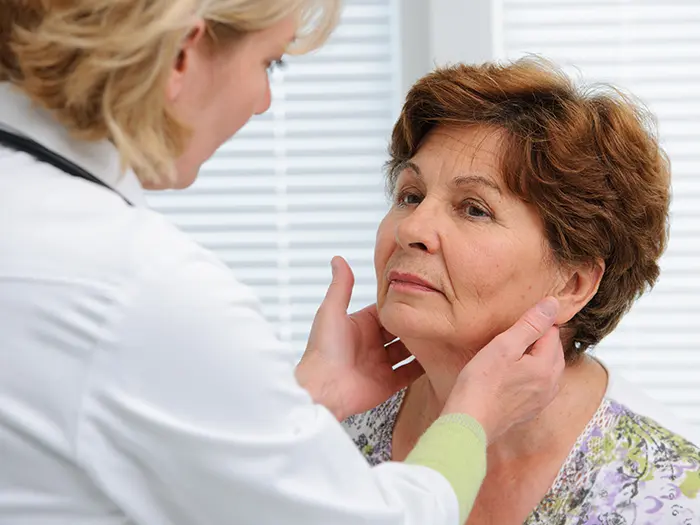The average woman experiences the menopausal transition somewhere between the age of 45 and 55. However, this transition is usually slow and takes roughly seven years (although it can take as long as 14). But, it’s essential to understand that these are just averages, and some women will go through menopause much earlier in life. Are you concerned you’re experiencing signs of early menopause? Find out if “the change” is really here for you and what that can mean.
What is Menopause?
Menopause is a point in a woman’s life when her menstrual cycle comes to an end. A woman officially reaches menopause when it’s been 12 months without a menstrual cycle. This stage in a woman’s life is often called “the change” because it marks when a woman officially can’t bear children anymore.
Menopause is a normal, natural part of life that every woman who lives long enough goes through. Having children very late in life (physically, mentally, financially, etc.) would be incredibly challenging, so it makes sense that biology has created a solution for this problem.
Most women enter menopause naturally and on their own time. However, there are some cases where a woman enters “induced menopause” due to medical intervention. For example, women who have had their ovaries surgically removed or underwent chemotherapy may find themselves in an early, induced menopause.
Lastly, certain factors can influence a woman’s menopause timing, such as smoking and genetics. Research shows that smokers enter menopause two years earlier, on average, than non-smokers.
What Are the Stages of Menopause?
It’s important to understand that menopause doesn’t happen overnight; it’s a multi-year process with three distinct stages.
Perimenopause
Perimenopause defines the period when your body begins its transition towards menopause. On average, perimenopause lasts three to four years, although for some women, it’s only a few months, and for others, it can be as long as a decade.
You can consider perimenopause the gradual shift towards menopause. Estrogen levels begin to drop, and many women may experience some symptoms as they go through this stage (such as hot flashes, vaginal dryness, and heavy periods).
A woman in perimenopause can still get pregnant as she has not reached menopause yet.
Menopause
After a woman hasn’t had a menstrual period for 12 consecutive months, she’s considered to have entered menopause. When a woman enters menopause, her ovaries stop producing high levels of specific hormones (estrogen and progesterone). These two hormones control menstruation, so when the production dips low enough, menstruation will stop. Additionally, a woman’s ovaries stop releasing eggs, contributing to the end of the menstrual cycle. The lack of a monthly egg release means women in menopause cannot get pregnant.
Postmenopause
The final stage is called postmenopause, the time after menopause. During postmenopause, a woman’s estrogen levels continue to drop. This continued estrogen decline increases the risk of some health conditions, including osteoporosis and heart disease.
A woman in postmenopause may continue to experience menopausal symptoms for several years.
Unsure if it's menopause?
What Is the Typical Age for Perimenopause?
Women typically enter menopause between the ages of 40 and 58. The average woman experiences menopause at 51. And since the perimenopause stage tends to last between four to eight years, it means the average woman is experiencing first perimenopause symptoms between 43-47 years old.
However, every woman experiences menopause differently. This is true for both the timeline, the types of symptoms felt, and the severity of those symptoms. Some women end up entering perimenopause as early as their 30s.
As a result, every woman in her mid-30s and beyond should know what premenopause symptoms look like. You don’t know how early “the change” will come for you, and you want to be prepared to handle it when it comes.
Initial Signs of Menopause
Here are some of the most common early warning signs that your body might be entering its transition into menopause:
- Hot flashes
- Night sweats
- Insomnia and difficulty sleeping
- Changes to your period, including
- Heavier than normal bleeding
- Periods close together
- Spotting between periods
- Periods that last more than seven days
- Mood swings
- Loss of libido
- Vaginal dryness, which leads to sexual discomfort
- Loss of bladder control
As mentioned, menopause symptoms at all stages look different for every woman. Some women may experience some of the above symptoms intensely during premenopause, while others may barely experience any. Being aware of these symptoms is the first step you can take so you can identify what’s happening when your body starts to show signs of the change.
Should You See a Doctor to Manage Your Menopause Symptoms?
Menopause can be a challenging time in a woman’s life. While many young women complain about their menstrual cycles, perimenopause and menopause are not exactly a walk in the park either! These stages come with many difficult symptoms, and the changes can be emotionally overwhelming. For example, insomnia, hormonal shifts, mood swings, and sexual discomfort can all lead to increased anxiety, depression, or anger.
Additionally, women who enter menopause have to pay more attention to their health. One study found that women gained one pound per year during their transition into menopause. In addition to weight gain, women have to worry about their heart health and bone density due to lower sex hormone production.
So, when should women consult a doctor for help getting through the menopause journey?
The answer is as soon as you notice symptoms!
The menopause transition takes many years, and there’s a chance that symptoms will come and go, in varying intensities, throughout those years. No one should have to deal with weight gain, shifting hormones, insomnia, and all these other issues alone. A medical professional can help you navigate this new phase of your life and offer assistance so you can manage symptoms as much as possible.
Some of the benefits of seeking professional medical help during a menopause transition are:
- You can be monitored and cared for if potentially serious symptoms arise, such as heart palpitations or osteoporosis.
- You can be treated for symptoms that negatively impact your life, such as insomnia and vaginal dryness.
- You can come up with a medically-approved proactive plan to combat the side effects you know are likely to come up with (weight gain and bone loss).
- Some women may need medications, such as antidepressants, to deal with the psychological impact of going through menopause.
And if you’re not sure you’re in perimenopause, it’s a good idea to consult with a doctor to confirm. After all, if you are entering menopause, it can be comforting to know what’s ahead. And you can start working on a plan to address symptoms. On the other hand, if you’re experiencing symptoms but aren’t in perimenopause, you may have another medical condition that needs attention.
Either way, getting a professional medical consultation is highly recommended. And you can start today. Reach out to Hormonally Balanced for more information about menopause symptom treatment. You can feel comfortable asking all your menopause-related questions to our all-female team. We’re here to support you through this next phase of your life so the transition can be as smooth as possible. Contact us today to book an appointment.



